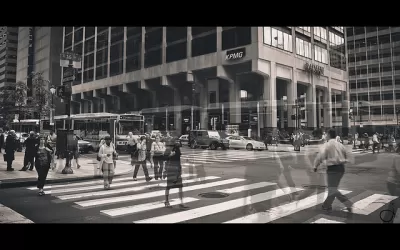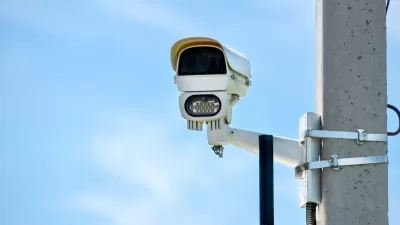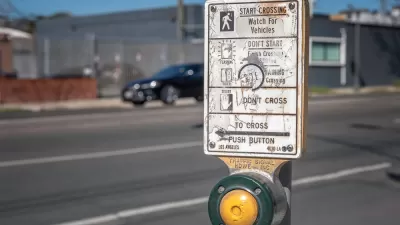Philadelphia's succeeded at reducing traffic fatalities in the first years after adopting a Vision Zero goal. That success didn't last, and one writer is calling for the city to back up its ambitious talk with actions.

Claire Sasko checks in with Philadelphia's Vision Zero goal, which started off strong but has recently been heading in the wrong direction:
In 2017, the city’s first year under Vision Zero, a decrease in crash fatalities made the impossible look … possible. But during 2018, the program’s second year, traffic deaths actually jumped by 17 percent, for an increase from 78 to 91, continuing a general upward trend in people killed by vehicles on Philly streets.
The Vision Goal is ambitious, writes but Sasko, but the actions of the city have not matched that ambition when it mattered.
The city has failed to follow through with the kinds of game-changing infrastructure projects that can permanently alter a city’s street-safety culture. One example? Bike lanes. In 2015, New York’s second year of Vision Zero, that city added 12.4 miles of protected bike lanes — more than double Philly’s total protected bike-lane network.
While Sasko's focus is trained squarely on Philadelphia's ambitions for traffic safety, the same story can be found in every city talking Vision Zero talk but not walking Vision Zero walk. The stories picked up by Planetizen on this same theme are numerous:
- Lack of Traffic Safety Enforcement Blamed for Vision Zero Failures (September 2019)
- Vision Zero Is Not Improving Bike Safety (August 2019)
- 'Vision Zero 2.0' Launched When Vision Zero 1.0 Didn't Save Any Lives (July 2019)
- L.A. Failing to Reach Vision Zero Goals (May 2019)
- Vision Zero’s Ambitious Safety Plans Face Implementation Realities (September 2018)
- Vision Zero, Bad Faith (July 2018)
- Vision Zero in Name Only (January 2018)
- One Year Later: No Progress Toward Vision Zero in D.C. (December 2016)
- Questioning the de Blasio Administration's Commitment to Vision Zero (September 206)
The question remains whether it's better to live in a city that has made a Vision Zero promise it had no idea how to keep, like the cities above, or to live in a city that can't muster the political will to make the promise in the first place, like Cincinnati and Phoenix.
FULL STORY: Vision Zero, Philly’s Bold Plan to Eliminate Traffic Deaths, Needs Bolder Action

Maui's Vacation Rental Debate Turns Ugly
Verbal attacks, misinformation campaigns and fistfights plague a high-stakes debate to convert thousands of vacation rentals into long-term housing.

Planetizen Federal Action Tracker
A weekly monitor of how Trump’s orders and actions are impacting planners and planning in America.

San Francisco Suspends Traffic Calming Amidst Record Deaths
Citing “a challenging fiscal landscape,” the city will cease the program on the heels of 42 traffic deaths, including 24 pedestrians.

Defunct Pittsburgh Power Plant to Become Residential Tower
A decommissioned steam heat plant will be redeveloped into almost 100 affordable housing units.

Trump Prompts Restructuring of Transportation Research Board in “Unprecedented Overreach”
The TRB has eliminated more than half of its committees including those focused on climate, equity, and cities.

Amtrak Rolls Out New Orleans to Alabama “Mardi Gras” Train
The new service will operate morning and evening departures between Mobile and New Orleans.
Urban Design for Planners 1: Software Tools
This six-course series explores essential urban design concepts using open source software and equips planners with the tools they need to participate fully in the urban design process.
Planning for Universal Design
Learn the tools for implementing Universal Design in planning regulations.
Heyer Gruel & Associates PA
JM Goldson LLC
Custer County Colorado
City of Camden Redevelopment Agency
City of Astoria
Transportation Research & Education Center (TREC) at Portland State University
Jefferson Parish Government
Camden Redevelopment Agency
City of Claremont





























